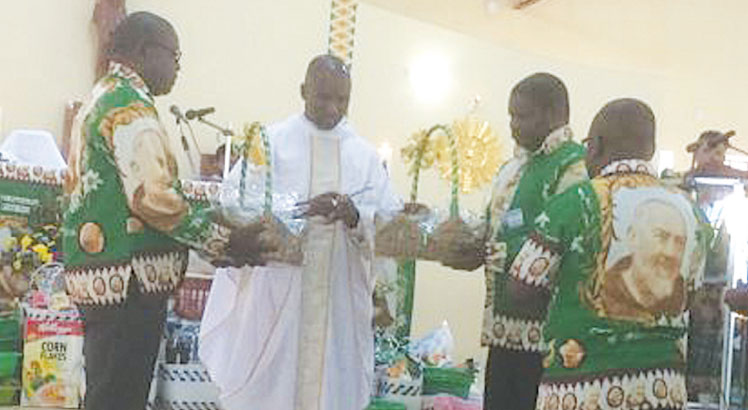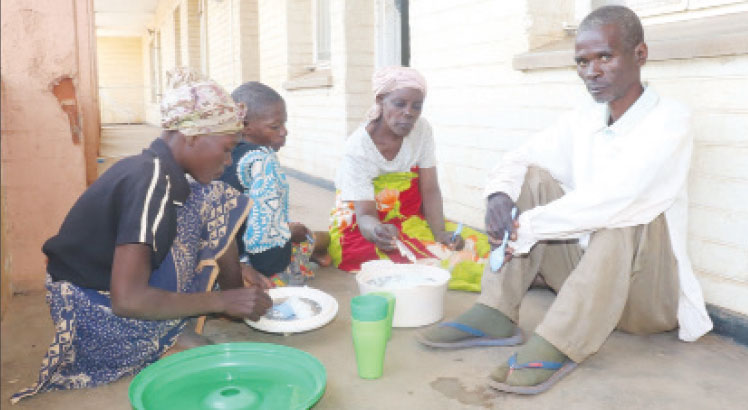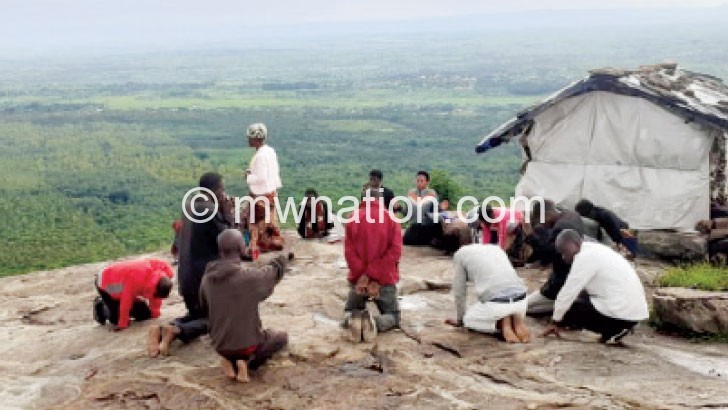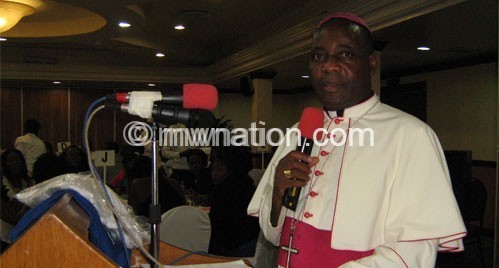Is the Church still relevant?
At a time Malawians are going through various social and economic hardships, our reporter WATIPASO MZUNGU wonders whether later-day prophets, apostles and pastors are advising government on what it needs to do to tackle these problems. He engages head of the Anglican Diocese of Upper Shire BISHOP BRIGHTON MALASA. Excerpts:

What has gone wrong with our nation? Is God punishing us for certain iniquities?
Indeed, Malawi is facing a number of challenges bordering on socio-economic, political and if I may add, Malawi today also faces spiritual challenges. This will manifest in what we deem ‘moral decay’, which has led to a number of vices such as, dishonesty, theft, and other sins including Cashgate, which, unfortunately, we hear continues as we speak. Malawi is also entangled in hot debates on homosexuality and abortions. Of late, we have seen the merciless killing of people with albinism, for example. This is a bad example for a God- fearing nation. Those in leadership are busy pulling each other down.
There is too much envy and people just don’t want to wish each other well. This is a manifestation of moral decay, which is a spiritual disease. I think all this borders on how morally upright we are. Some people have said Malawi is an independent State politically, but dependent State economically, and socially.
What I am trying to say here is that our economic plans for the future will, obviously, face limitations. For example, our farmers grow tobacco, tea and other crops, but do they have rights to determine prices for their crops? The answer is no, which means we are not independent economically.
Climate change is equally becoming a big issue, what is your take?
We have destroyed the environment and as a result we have shortfall of electricity supply and water shortages in town, cities, and in our villages. We depend on rain-fed agriculture, but due to environmental degradation, we no longer receive rains as it was in the last 20 years.
We now suffer due to climate change, which is changing rapidly. These challenges are worsening every time, every year and life is becoming tougher, especially among our poor, who are unfortunately, the majority. We can go on and on citing examples of our socio-economic challenges, but as already alluded to, we should not ignore spiritual challenges.
Yes our role is to play a prophetic role, but it will be too judgemental to say that God is punishing Malawi. It will be so dangerous to attribute that all what we face is as a result of moral decay. It is only God who can judge us, but I know that others will be quick to say, God is punishing Malawi for her disobedience and for not keeping the law. I have heard some people say Malawi is suffering due to too much sinful behaviours. I will not tread in such judgemental position. It is up to God to say, and us to interpret the signs of the times we live in. But the truth is that Malawi surely needs to repent as sinful behaviours are a hindrance to receiving God’s blessings.
What role has the Church assumed among poor citizens?
Since the advent of missionaries in the 19th century, the Church has engaged itself in alleviating poverty, ignorance, health challenges, and other cross-cutting issues. That is why up to now relatively best schools in the land are owned by churches. About 60 percent of the education and 40 percent of health services are being provided by churches. We are also engaged in addressing issues such as disasters, agriculture, training of social workers, on top of preaching the gospel, which is our main agenda. We are mandated by God to be the prophets of the day. To stand between people and God, that is why we always side with the poor in advocating for their rights and helping with what we have in our hands. You will agree with me that whatever people face—good or bad—Jesus’ face is manifested through His church and we do what we can as a contribution and also as a way of testimony of the love of God being given to them through the alleviating of their worries, anxiety, and instilling hope, love, unity and all the Christian values as taught by God through the prophets of the old, and indeed through Jesus Christ, His only begotten Son.
What should Malawians do to invoke God’s forgiveness?
In our Christian calendar, we are in Advent—time to prepare for the coming of Christ. We prepare not just to celebrate His birth, but also get ready for His second coming and remember how He comes to us in our daily lives. Jesus will come again to judge the living and the dead, which in a way must be a motivation for us to live holy. We are not holy per se, but we must strive to be holy as He is.
As Malawians, we always spend most of the time doing or talking things that won’t build our nation. We are busy dividing the nation, envy, and other vices, but can we, for once, hearken what Jesus Christ is teaching us? Loving one another will be the answer to most of our challenges. Our country will be such a good place to live in if we love one another, so let love reign. The word of God is very clear on this matter: “If my people, which are called by my name, shall humble themselves, and pray, and seek my face, and turn from their wicked ways; then will I hear from heaven, and will forgive their sin, and will heal their land” (2 Chronicles 7:14).
Looking at the moral decay you have talked about, should we still hold the notion that Malawi is a God-fearing nation?
Indeed we are a God-fearing nation. Almost everyone in Malawi wishes to belong to a certain religious group, which is evidence enough of the God-fearing aspect of every person. All religions we have in Malawi preach peace, love and harmony. In other words, they preach and teach on how we should live morally? I know people have argued that an affiliation of someone to a religious grouping is not enough to make Malawi a God-fearing nation. One of my professors in the university once said he was worried that the level of Christianity in Africa, including Malawi is a mile wide and only one inch deep. This is to say, the faith we profess does not correspond with what comes out of the people professing that Christianity. Mahatma Gandhi once said: “If all Christians in India did what their Christian religion teaches them, India would have been a transformed country.”
I guess this explains our situation in Malawi. If, indeed, all of us who say we are a God-fearing nation did what our religions teach us, we could have a better Malawi. n





